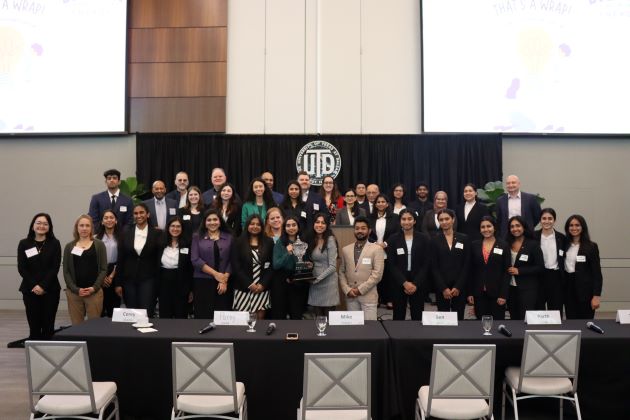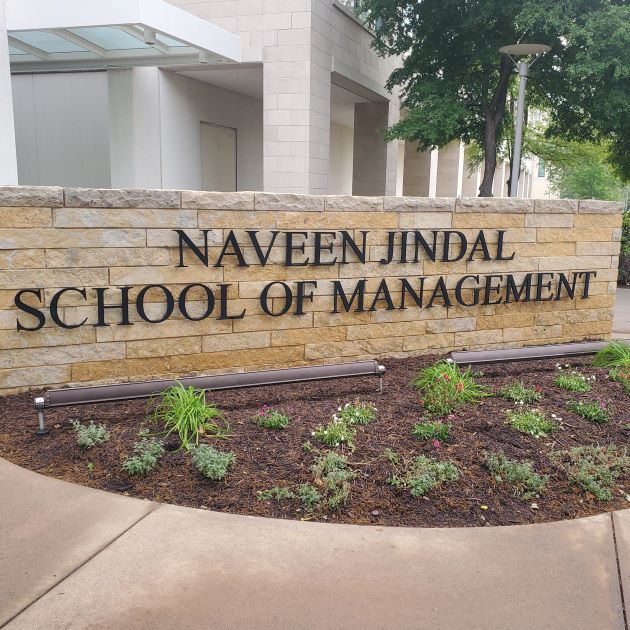Costs in the hundreds of millions and tens of thousands. Local. South America. Ideas ran the gamut.

Judges and audience alike were impressed at the finals and celebration of the Naveen Jindal School of Management’s 2023 Global Sustainability Experience — a pitch competition and seminar series.
The April 20 event was organized by the Sustainable Global Business Initiative, the Center for Global Business, the Center for Information Technology and Management and held at the Davidson-Gundy Alumni Center. Event sponsors were the Ann and Jack Graves Charitable Foundation, Infosys and Vistra Energy, which presented a check for $25,000 at the event.
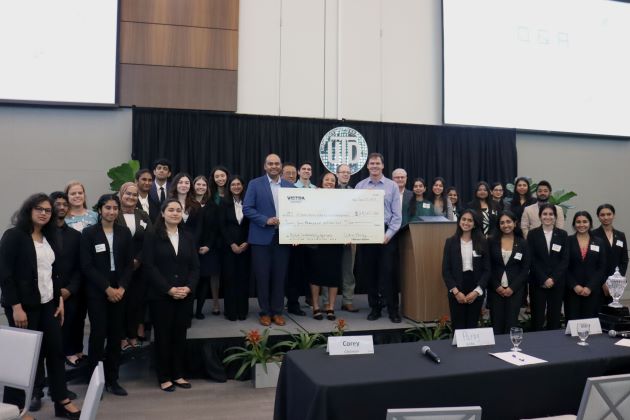
Dr. Habte Woldu, a conference committee member and Director of the Global Sustainability Initiative at the Jindal School, said he saw the seeds of the future planted at the event.
“Great ideas come out of sustainability,” he said. “Students know the phases, the challenges and now solutions. They can be ahead of their time and for me they showed great understanding of the topic.”
Dr. Hasan Pirkul, Caruth Chair and Dean of the Jindal School, reminded the audience that sustainability requires sacrifice.
“The answers lie in what you will do in the future,” he said.
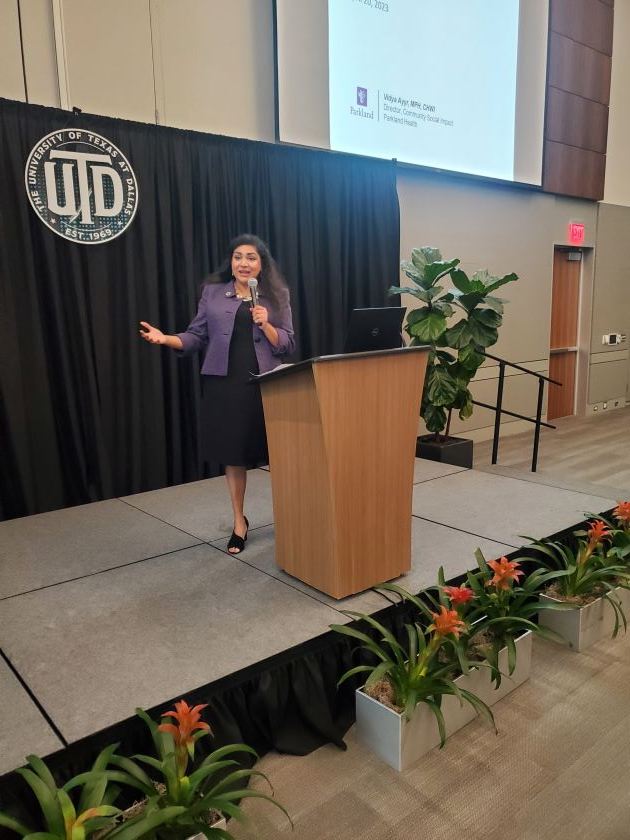
Vidya Ayyr, BS’06, director of community social impact at Parkland Hospital, and François Gemenne, director of the Hugo Observatory in Paris, gave keynote presentations.
“We want a fair and just society where everyone has the power to be healthy,” Ayyr said.
Ayyr, who earned a bachelor’s degree in business administration from the Jindal School, is making a difference in her spare time as well. She shared with the audience her experience of founding BrainCharge, which serves caregivers who support those impacted by brain-related trauma, illness or injury.
For the business competition portion of the conference, four UT Dallas finalist teams came to share their sense of innovation.
One team offered an idea for a mobile farmers market for UT Dallas to change the health habits of future Comets. The students were armed with a survey that showed roughly 75 percent of students were willing to give it a try. The projected costs included $17,000 for a trailer and $24,000 for a truck. Projected commissions were 50 percent and $18 an hour for employees.
From Richardson to Uruguay, the competition proceeded. Aanother team offered a consulting service for building in the business-friendly South American nation, projecting a profit of roughly $30 million, sharing the opportunities of open trade along with other factors such as welcoming tourism.
A third team considered how small broken appliances add up to huge pollution. With the aid of an app, they offered education on appliance maintenance and repair to not just try saving money but also our planet from the dirge of old coffeemakers, toasters and more.
A fourth team focused on HVAC, their plan offering technology which focused on zoning to conserve energy.
In the end, the judges fixed on the app for appliances, awarding the team first place and a $3,000 prize.
“It was my first time developing a full (profit and loss statement) and doing data work…and the teamwork element was crucial to winning,” said Madison Hill, a finance and healthcare management junior at the Jindal School. “It was amazing to get a chance to talk about something I really cared about and getting to talk to people who could provide helpful analysis for what we wanted to do.”
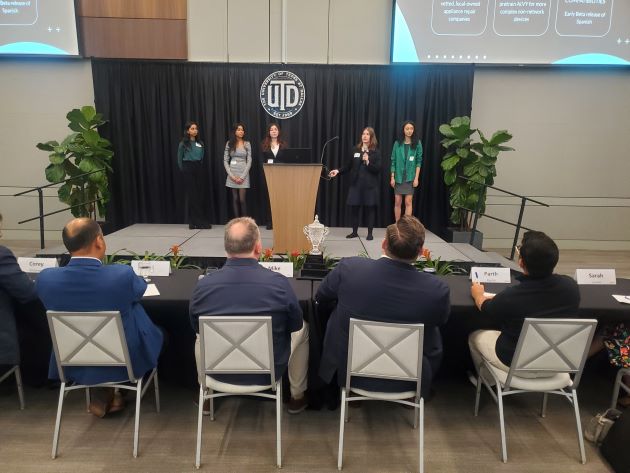
Rebecca Beights, a psychology and philosophy junior in the School of Behavioral and Brain Science, believed the team’s mix of passions helped put them over the top.
“We had a team from so many different backgrounds from JSOM to behavioral brain sciences,” Beights said. “(It) was helpful to have all those perspectives for ideas.”
Dr. Dorothée Honhon, a conference committee member, associate dean for diversity, equity and inclusion and a professor in the Operations Management Area at the Jindal School, was excited by how the conference challenged people about sustainability and offered students presentation and innovation experience.
“Getting a chance to get advice from judges is very valuable—and the winning team was all women,” she said. “I would love to see the teams go forward with their ideas.”
Dr. Ron Bose, a conference committee member, director of the Center for Information Technology and Management and professor at the Jindal School, found this second year of the event as successful as the inaugural one.
“The goal is to get our students exposed to new ideas and they certainly were,” he said. “I could tell they gained a great deal from the back and forth with the judges.”
Competition judge Parag Kode, director of business intelligence at Vistra, said the feeling was mutual.
“The next ideas that change the world often come from young people,” Kode said. “Through questions today, they were learning, but we were learning, too.”
